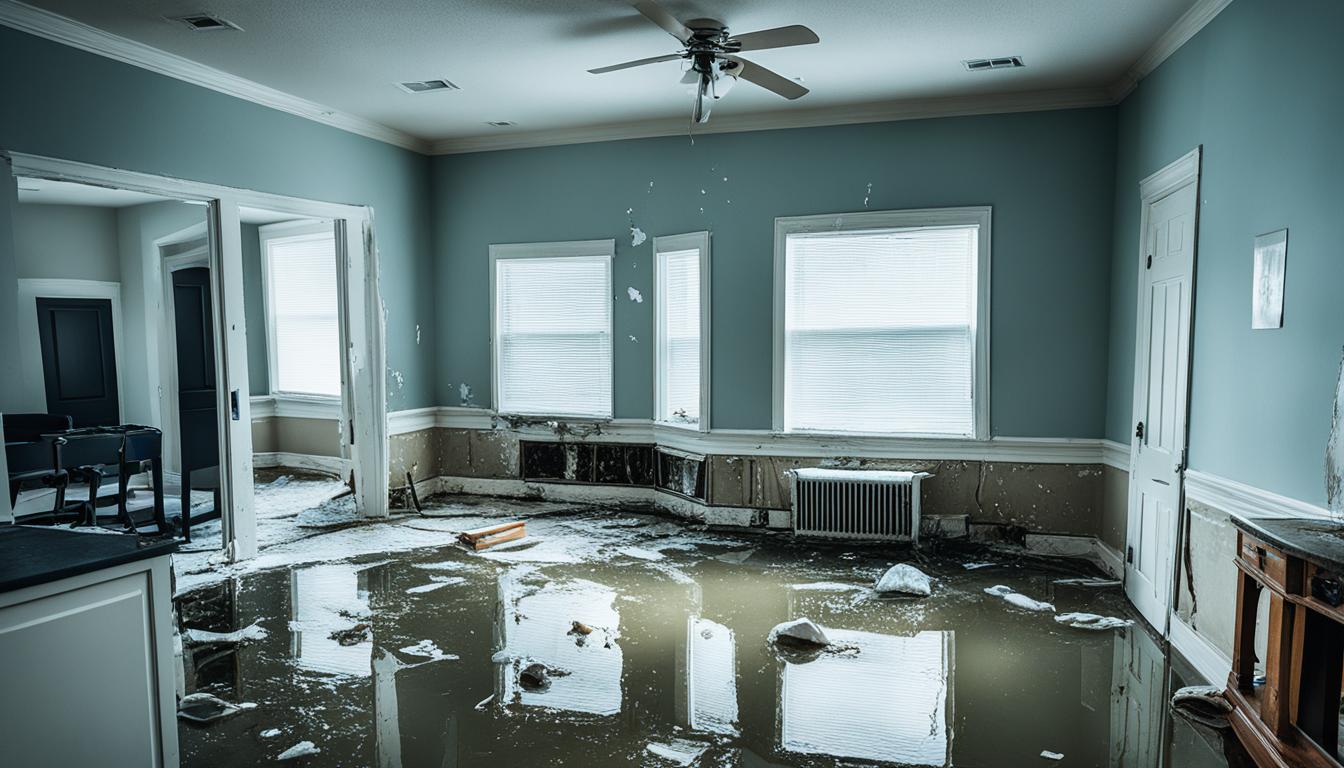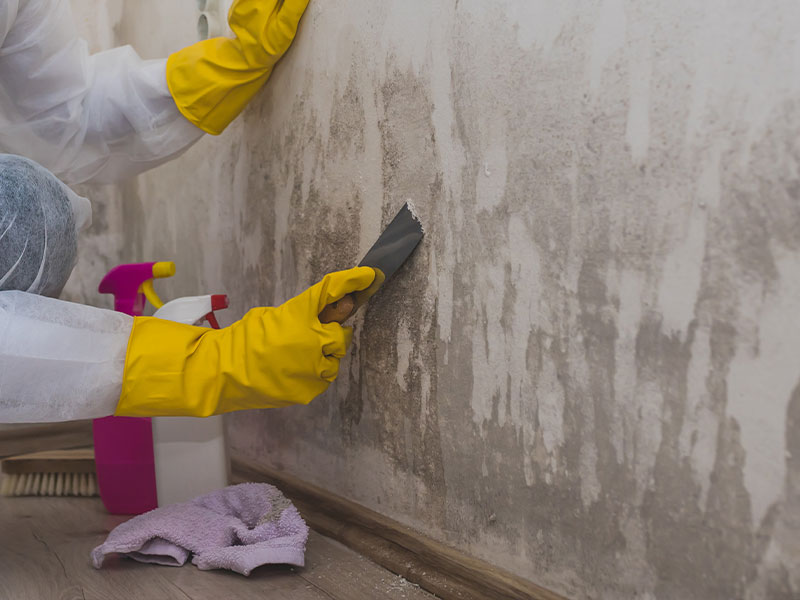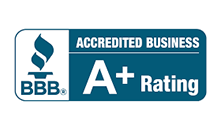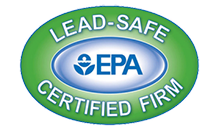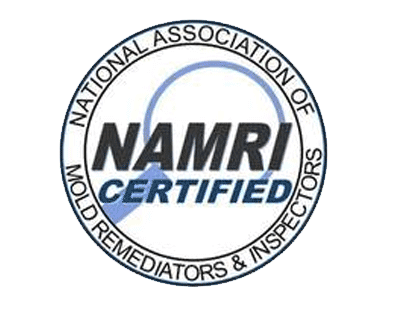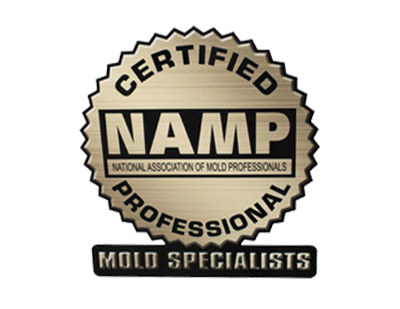In this section, we will explore the impact of water damage and discuss what items are commonly ruined. Understanding the potential damage caused by water is crucial in protecting your valuables from lasting harm.
Key Takeaways:
- Water damage can have a significant impact on a wide range of items, potentially causing lasting harm.
- Electronics, furniture, clothing, documents, and photographs are commonly affected by water damage.
- Swift action is crucial in minimizing the impact and salvaging your possessions.
- Preventive measures such as regular maintenance and proper storage can help protect your valuables from water damage.
- Professional restoration services can greatly aid in recovering and restoring your possessions after water damage.
Common Items Affected by Water Damage
In this section, we will delve into the common items that are often affected by water damage. Whether it’s a burst pipe, severe weather, or a leaky roof, water damage can wreak havoc on your possessions, causing significant distress and financial loss. By understanding the potential risks and damages associated with each type of possession, you can take proactive steps to protect what matters most to you.
Let’s explore some of the most commonly affected items:
- Electronics: Water and electronics are a disastrous combination. From smartphones and laptops to televisions and gaming consoles, water exposure can lead to irreparable damage. Components may corrode, circuits may short-circuit, and screens may be permanently ruined. It’s crucial to keep electronics far away from any potential water sources or to protect them with sturdy, waterproof casings.
- Furniture: Upholstered furniture, such as couches, chairs, and mattresses, are highly absorbent and prone to water damage. Excess moisture can seep into the fabrics, causing mold, mildew, and unpleasant odors. Wood furniture is also at risk, as water can lead to warping, discoloration, and structural instability. Taking immediate action to dry and restore these items is essential to minimize long-term damage.
- Documents and Paperwork: Important documents, such as passports, birth certificates, and contracts, are vulnerable to water damage. Exposure to moisture can cause ink to smudge, papers to warp or dissolve, and vital information to become illegible. Storing important documents in waterproof containers or utilizing digital backups can help safeguard them from water-related disasters.
- Clothing and Textiles: Water damage can ruin clothing, linens, and other textiles. Stains, mold growth, and unpleasant odors are common outcomes when fabrics are exposed to excess moisture. Promptly treating and drying water-soaked garments is crucial to prevent permanent damage and avoid the need for costly replacements.
While these are just a few examples, it’s important to note that any item exposed to water is at risk of damage. From photographs and artwork to appliances and musical instruments, water damage can wreak havoc on your belongings in countless ways. By prioritizing prevention and acting swiftly in the event of water damage, you can help protect your cherished possessions and minimize the impact of water-related incidents.
Common Items Affected by Water Damage
| Item | Potential Damages |
|---|---|
| Electronics | Corrosion, short-circuits, screen damage |
| Furniture | Mold, mildew, warping, discoloration |
| Documents and Paperwork | Ink smudging, paper warping, illegible information |
| Clothing and Textiles | Stains, mold growth, unpleasant odors |
Steps to Protect Your Valuables
When it comes to safeguarding your valuable possessions from water damage, prevention is key. By taking a few proactive steps, you can significantly reduce the risk of water damage and ensure the longevity of your prized items. Here are some practical tips to help you protect your valuables:
- Inspect and repair: Regularly inspect your home for any leaks or damaged pipes. Addressing these issues promptly can prevent water damage from occurring in the first place.
- Install water detection devices: Consider installing water detection devices in areas prone to leaks, such as basements and laundry rooms. These devices can alert you at the first sign of water, allowing you to take immediate action.
- Implement proper storage: When storing valuable items, opt for water-resistant containers or elevated shelves. Keep items off the floor to minimize the risk of water damage in the event of a flood or leak.
- Use waterproof coverings: Protect your furniture, electronics, and other valuable possessions by using waterproof coverings, especially in areas with a higher risk of water exposure, such as bathrooms or near windows.
- Secure important documents: Store important documents, such as passports, birth certificates, and insurance policies, in a waterproof and fireproof safe. This ensures their protection from both water damage and other potential hazards.
By following these steps, you can prevent water damage and safeguard your valuable possessions. However, it’s important to remember that even with these precautions, accidents can still happen. In the unfortunate event of water damage, it’s crucial to act quickly and engage professional assistance for proper recovery and restoration.
The table below provides a quick summary of the key steps to protect your valuables:
| Steps to Protect Your Valuables |
|---|
| Inspect and repair |
| Install water detection devices |
| Implement proper storage |
| Use waterproof coverings |
| Secure important documents |
Implementing these steps can provide you with peace of mind knowing that you have taken the necessary measures to safeguard your possessions against water damage. Stay proactive and prepared to preserve the integrity of your valuable items.
Recovery and Restoration after Water Damage
When water damage strikes, swift action is crucial to minimize the impact and salvage as many possessions as possible. In this section, we will guide you through the recovery and restoration process, highlighting the importance of acting fast and enlisting the help of professionals for a successful outcome.
1. Act quickly: Time is of the essence when dealing with water damage. As soon as it happens, begin by removing any standing water and drying out the affected areas. This will prevent further damage and mold growth.
2. Call professional restoration services: While you may be tempted to handle the restoration on your own, it’s best to seek the expertise of professionals who specialize in water damage recovery. They have the knowledge, tools, and experience to thoroughly assess the damage and restore your possessions.
3. Salvage valuable items first: Prioritize the retrieval and restoration of valuable possessions such as family heirlooms, important documents, and electronics. These items may require special attention to avoid further damage.
4. Dispose of unsalvageable items: Unfortunately, not all items can be restored after water damage. Moldy, saturated, or severely damaged belongings may need to be disposed of properly to prevent further contamination or hazards.
5. Document the damage: Before any restoration work begins, document the extent of the damage by taking photographs or videos. This will help with insurance claims and provide a comprehensive record of the loss.
Remember, water damage recovery and restoration is a complex process that requires professional expertise. It’s essential to hire trusted professionals who can fully assess the damage, employ effective restoration techniques, and ensure the safety of your home and belongings.
| Benefits of Professional Restoration | Benefits of DIY Restoration |
|---|---|
| Expert assessment of damage | Cost savings |
| Specialized equipment and techniques | Immediate action |
| Mold prevention and remediation | Control over the restoration process |
Conclusion
Throughout this article, we have explored the devastating impact of water damage on various items. Understanding the potential risks and damages associated with water intrusion is essential in protecting your valuables from lasting harm.
By recognizing the common items that are susceptible to water damage, such as electronics, furniture, and important documents, you can take proactive measures to safeguard these possessions. From preventive measures like sealing cracks and installing proper drainage systems to utilizing waterproof storage solutions, there are steps you can take to reduce the risk of water damage.
In the unfortunate event that water damage occurs, it is crucial to act swiftly to minimize the impact. Seeking professional assistance from experienced restoration specialists can ensure a thorough and effective recovery process. Remember to document the damage for insurance purposes and salvage what you can.
In conclusion, protecting your valuables from water damage requires a combination of preventive measures, swift action, and professional assistance. By implementing the strategies discussed in this article, you can greatly reduce the risk of water damage and preserve the integrity of your possessions.
FAQ
What is the impact of water damage?
Water damage can have a significant impact on various items in your home or property. It can lead to the deterioration and ruin of belongings, causing lasting harm.
Which items are commonly ruined by water damage?
Water damage can affect a wide range of items, including electronics, furniture, documents, photographs, carpets, clothing, and appliances. These possessions are vulnerable to the harmful effects of water infiltration.
How can I protect my valuables from water damage?
There are several steps you can take to safeguard your valuables from water damage. These include regular maintenance of your property’s plumbing system, installing and properly maintaining sump pumps, sealing any potential points of water entry, and ensuring proper storage and placement of items, especially in areas prone to water leaks or flooding.
What should I do if I experience water damage?
If you experience water damage, it is crucial to act swiftly. Start by shutting off the main water supply to prevent further damage. Then, document the damage for insurance purposes and contact a professional restoration company to assess and mitigate the damage. They have the expertise and equipment to restore your possessions as much as possible.
Is it necessary to hire professionals for water damage restoration?
Yes, hiring professionals for water damage restoration is highly recommended. They have the knowledge, experience, and specialized equipment to handle water extraction, drying, dehumidification, and mold remediation effectively. Promptly engaging professional assistance can minimize further damage and increase the chances of salvaging your belongings.
What are the key points to remember about protecting valuables from water damage?
Protecting your valuables from water damage is crucial. Take preventive measures, act swiftly in case of water damage, document the damage, and seek professional restoration services. Remember, protecting your possessions from water damage can save you from significant financial and emotional distress.
